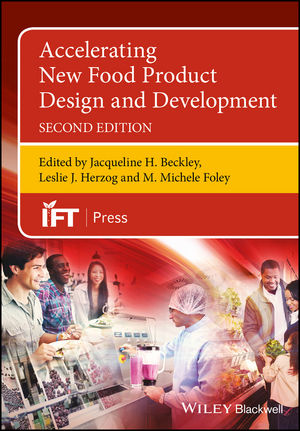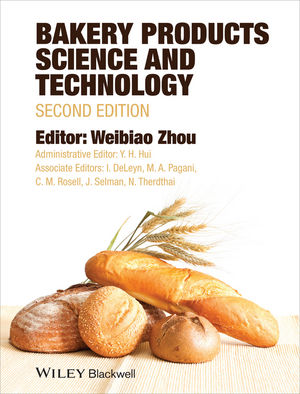Supplier perspectives: Functional fats for desserts

courtesy of: Cargill
According to the 2022 State of the Industry category analysis of the desserts category—encompassing retail cake, pie, and cheesecake products—today’s consumers are continuing their pursuit of indulgent treats (see “State of the Industry 2022: Consumers look to indulge in desserts”). Sales are up across nearly every segment of desserts, demonstrating that selective indulgence is still in demand.
But shopper perspectives on key aspects of those desserts continue to shift. This can include the type of fat listed on the product label—a group of ingredients that often need to deliver on several levels, including flavor and functionality, as well as label-friendliness. In order to learn more about this vital aspect of dessert formulations, we reached out to Tai Ullmann, sustainability lead, global edible oil solutions, and John Satumba, Ph.D., global bakery technical lead and regional R&D director for North America, global edible oil solutions, both with Cargill, Minneapolis.
Douglas J. Peckenpaugh: What are some current consumer perspectives on sustainability as it relates to bakery essentials like fats and oils?

Tai Ullmann
Tai Ullmann: More than ever, consumers care about the standards behind the products they buy. They want assurance that raw materials are sourced in a sustainable, environmentally friendly way, with high regard for social standards and ethical economic practices.
Our recent global FATitudes survey affirms this growing concern for the environment. The research, which tracks consumers’ awareness and behaviors around fats and oils found in packaged food, revealed that sustainability has gained importance in consumers’ food choices. We found that 55% of consumers indicate they’re more likely to purchase a packaged food item if it includes a sustainable claim, a four-point jump since we last fielded this research in 2019.
Conducted in summer 2021, the global survey included approximately 6,000 primary grocery shoppers in 11 countries. More than half of the countries surveyed showed an increase in the influence of sustainability claims, including the U.S. We found four in 10 (37%) American consumers indicated they were more likely to purchase packaged food with a sustainability claim. This represents a 6-point increase compared to 2019 results and a 16-point jump since we fielded the first FATitudes survey in 2013.
For the first time, we asked consumers what type of sustainability claim they were looking for. In the U.S., “sustainably sourced” (63%) and “responsible sourcing” (57%) topped the list. As consumers become more concerned and aware of issues surrounding sustainability, it seems clear that demand for ethically and sustainably sourced products will only grow. That’s why we’re enabling brands to deliver on those expectations, by building sustainable, traceable and transparent supply chains across our ingredient portfolio—including our fat and oil product lines.
DJP: How can available sustainable fat and oil options factor into development of desserts like cakes and icings?

John Satumba
For applications like cake batters and icings, which need a solid fat to fulfill functional roles, we often rely on advanced palm-based solutions. Palm-based cake shortenings can help bakers create finished cakes with the moistness, texture, and flavor they desire, while palm-based icing shortenings support aeration and structure, flavor, mouthfeel, and shelf-life stability. However, we recognize that bakers also need solutions that help them meet their sustainability goals. That’s why in December 2020, we invested in our supply chain to make RSPO-certified segregated palm oil available to our North American customers.
Segregated certified palm oil products must be produced according to the principles and criteria established by the RSPO, which verifies against no deforestation, no development on peat and no exploitation principles. To carry the segregated-RSPO designation, all product must be kept separate from commodity palm oil supplies and be traceable throughout the supply chain. It is produced on RSPO-certified sustainable palm oil plantations, refined at RSPO-certified facilities and ultimately used by a RSPO-certified manufacturer.
Soon, we’ll be expanding our RSPO-segregated offerings to include palm stearin and palm olein products. This is possible, in part, thanks to our investment in a new palm oil refinery in Indonesia. When complete in late 2022, the new refinery will help Cargill meet customers’ evolving expectations around sustainability and transparency.
DJP: How do you work with bakers to develop sustainable bakery products, both in person and remotely?
JS: In today’s competitive marketplace, it’s no longer enough to create a great-tasting product. Increasingly, it’s the compelling story that captivates consumers. Shoppers expect companies to provide information and a high degree of honesty about ingredients, including their origin and production processes. At Cargill, we’ve taken those desires to heart, developing supply chains across our ingredient portfolio that deliver on those demands for transparency and sustainability.
Too often, we see brands address sustainability in terms of individual commodities, but we believe customers should take a more holistic view. Our broad ingredient portfolio enables us to do just that, from responsibly sourced cocoa and chocolate to flour produced using stewardship practices from field to bakery to our RSPO-segregated palm oil.
We even have capabilities and facilities that allow us to partner with customers to co-create products that meet consumers’ desires. Within the fats and oils space, our expanded North American Pilot Development Center is now fully online, enabling us to evaluate new raw materials, validate performance specifications and develop new oils and shortenings for specific customer applications faster than ever before.
At our nearby innovation center, located in Plymouth, MN, we can work side by side with customers in our bakery application lab. Together, we create custom solutions that deliver the functionality their formulation requires, while also addressing expectations around nutritional profile, sustainable sourcing and other considerations. And, while we love collaborating in-person, we’re also investing in new ways to connect with our customers, including using HoloLens Technology, which allows us to meet with customers as if they are working right next to us.
Looking for a reprint of this article?
From high-res PDFs to custom plaques, order your copy today!









